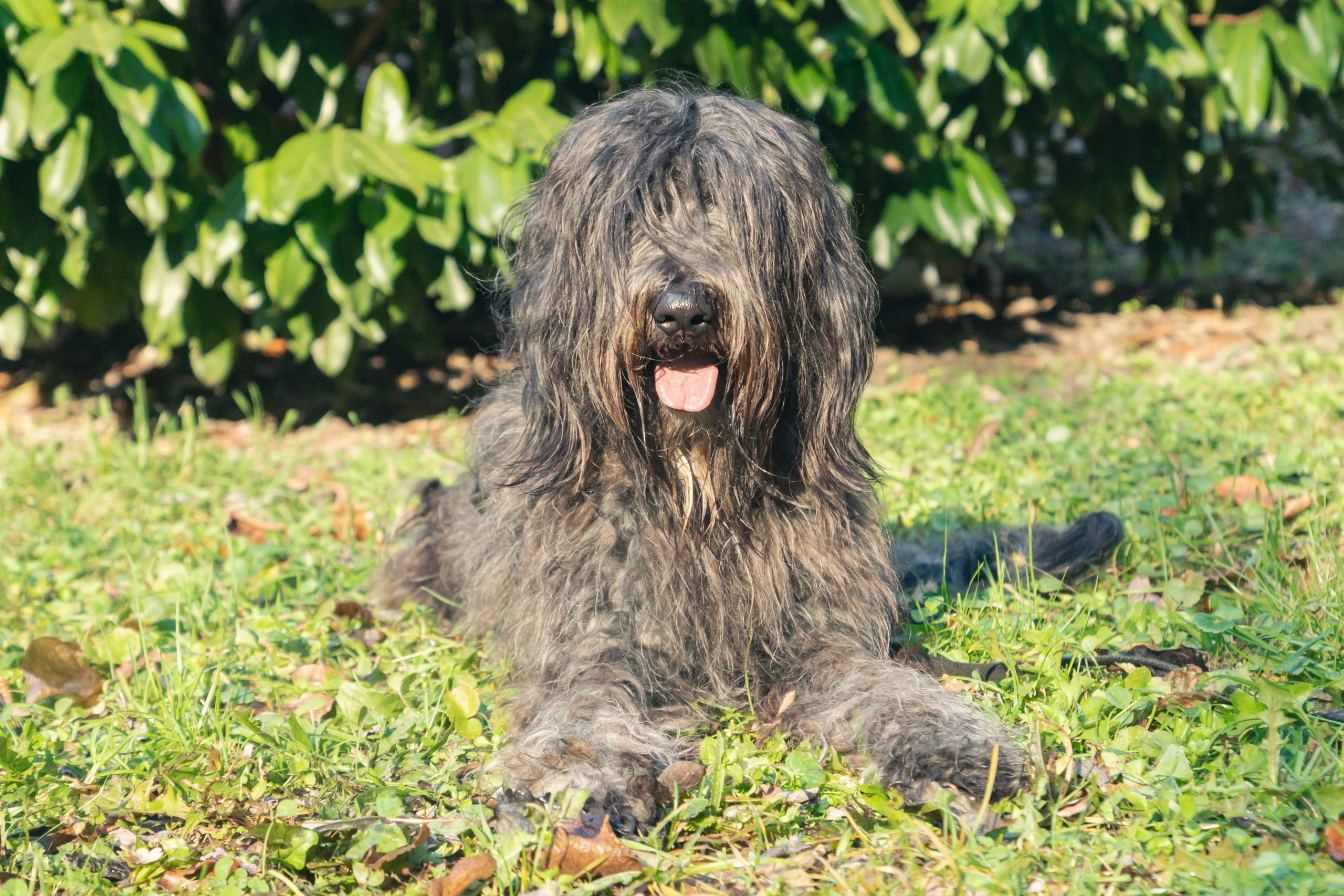With their distinctive flowing coats and warm, affectionate personalities, Shih Tzus are beloved companions in homes worldwide. Originating from Tibet, these dogs are known for longevity, often living into their mid-teens. A Shih Tzu’s lifespan typically ranges between 10 to 16 years, a testament to their robustness and the meticulous care their owners provide. However, like all breeds, Shih Tzus face specific health challenges that can impact their longevity. Understanding these issues and how to address them can help ensure that these charming dogs live the fullest, healthiest lives possible.
The Role of Genetics and Care in Shih Tzu Longevity
A Shih Tzu’s lifespan is influenced by genetics, care level, and environmental conditions. Genetically, Shih Tzus are predisposed to certain conditions, but with proper care, including regular veterinary check-ups, a nutritious diet, and adequate exercise, they can lead long and healthy lives. Environmental factors, such as living indoors and avoiding hazardous situations, also play a critical role in their longevity.
Common Health Challenges for Shih Tzus
Dental Problems
Dental issues are prevalent in Shih Tzus due to their tiny mouths, leading to overcrowded teeth and an increased risk of periodontal disease. Regular dental care, including brushing and professional cleanings, is essential to prevent infections affecting their overall health and lifespan.
Respiratory Issues
Their brachycephalic (flat-faced) nature makes Shih Tzus susceptible to respiratory problems. Owners should be mindful of this, especially during hot weather or strenuous exercise, to prevent breathing difficulties leading to more severe health issues.
Eye Conditions
The large, prominent eyes of Shih Tzus are prone to several conditions, including keratitis, progressive retinal atrophy, and cataracts. Regular veterinary eye examinations can help catch and treat these conditions early, preserving vision and quality of life.
Hip Dysplasia
Although less common than in larger breeds, Shih Tzus can suffer from hip dysplasia, a genetic condition where the hip joint doesn’t fit properly, leading to arthritis or mobility issues. Weight management and appropriate exercise can help manage this condition.
Ear Infections
Their floppy ears can trap moisture and lead to infections. Regular cleaning and monitoring for signs of illness are essential preventive measures.
Diet and Nutrition
A balanced diet tailored to their needs is crucial for maintaining a Shih Tzu’s health. High-quality dog food appropriate for their age, size, and activity level can prevent obesity, a significant factor in many health issues and a known reducer of lifespan.
Exercise and Mental Stimulation
Regular, moderate exercise is vital for keeping a Shih Tzu healthy, helping manage weight and preventing joint issues. Mental stimulation, through play and training, can also contribute to their overall well-being and happiness.
Preventative Veterinary Care
Regular check-ups with a veterinarian can catch health issues early when they’re more manageable. Vaccinations, parasite control, and dental care are also crucial components of preventative care that can extend a Shih Tzu’s lifespan.
The Importance of Spaying or Neutering
Spaying or neutering prevents unwanted litter and can protect against specific health issues, such as uterine infections and prostate problems, contributing to a longer, healthier life.
Grooming and Skin Care
Regular grooming is not just about keeping a Shih Tzu looking their best; it’s also vital for their health. Proper skin care can prevent infections, while regular brushing can reduce the risk of painful matting and skin issues.
Mental Health and Socialization
A happy Shih Tzu is a healthier Shih Tzu. Socialization, training, and regular interaction with their human family members can prevent anxiety and stress, contributing to a more contented and potentially longer life.
The Impact of a Loving Home
The love and care a dedicated owner provides are the most critical factors in maximizing a Shih Tzu’s lifespan. A nurturing environment, attentive care, and an understanding of their unique needs can ensure that a Shih Tzu not only lives a long life but also a fulfilling one.
Addressing Age-Related Issues
As Shih Tzu’s ages, they may face additional health challenges. Adjusting their diet, modifying their exercise routine, and managing chronic health issues with veterinary assistance can help them enjoy their golden years in comfort.
The Role of Responsible Breeding
Choosing a Shih Tzu from a reputable breeder who conducts health screenings can reduce the risk of genetic conditions. Prospective owners should seek breeders who prioritize health, temperament, and longevity in their breeding programs.
In conclusion, while Shih Tzus are generally healthy and long-lived dogs, they face specific health challenges that can affect their lifespan. Owners can significantly influence their Shih Tzu’s health and longevity through attentive care, regular veterinary check-ups, and a loving home. A combination of preventative health measures, a healthy lifestyle, and understanding the breed’s needs can ensure that these affectionate companions live to their fullest potential.
How Can I Extend the Lifespan of My Shih Tzus?
Shih Tzus are known for their affectionate nature, distinctive appearance, and relatively long lifespan, ranging from 10 to 16 years. As a Shih Tzu owner, it’s natural to want your furry friend to be by your side for as long as possible. Fortunately, there are several strategies you can adopt to help extend the lifespan of your Shih Tzu, ensuring they lead a healthy, happy life. This article delves into practical steps owners can take, from diet and exercise to veterinary care and mental well-being, to maximize the health and longevity of their Shih Tzu.
Prioritizing Preventative Veterinary Care
Regular veterinary check-ups are crucial for identifying and managing health issues early on. Preventative care includes routine vaccinations, parasite control, and health screenings that can detect conditions common in Shih Tzus, such as dental issues, respiratory problems, and hip dysplasia. Early detection and treatment of these issues can significantly improve your dog’s quality of life and extend their lifespan.
Maintaining a Balanced Diet
A balanced diet tailored to your Shih Tzu’s age, size, and activity level is essential for their overall health. High-quality dog food that meets their nutritional needs can prevent obesity, a significant health risk for Shih Tzus. Consider incorporating foods rich in antioxidants to support their immune system and consulting with your vet to adjust their diet as they age or if health issues arise.
Ensuring Regular Exercise
Though Shih Tzus are not as active as some breeds, regular exercise is vital to prevent obesity and maintain healthy joints. Daily walks and playtime can keep your Shih Tzu fit while providing mental stimulation. Avoid overexertion, especially in hot weather, due to their susceptibility to respiratory issues.
Dental Care
Dental health is often overlooked but is critical for Shih Tzus. Periodontal disease is common and can lead to serious health problems. Brushing your dog’s teeth daily, using dental treats, and scheduling regular dental check-ups can prevent dental disease and contribute to a longer lifespan.
Eye Care
The large, prominent eyes of Shih Tzus are prone to various conditions. Regular cleaning and monitoring for signs of irritation or infection are essential. Consult your vet if you notice any abnormalities, as early treatment can prevent more severe issues.
Ear Care
Their floppy ears make Shih Tzus susceptible to ear infections. Regular cleaning and drying of their ears, especially after baths or swimming, can prevent diseases that could impact their quality of life and longevity.
Skin and Coat Care
Regular grooming is essential for preventing mats and tangles in their long coat, which can cause skin irritation and infections. Bathing your Shih Tzu with a gentle dog shampoo and brushing their fur regularly can keep their skin healthy and their coat in good condition.
Managing Weight
Obesity can significantly shorten a Shih Tzu’s lifespan by predisposing them to diabetes, joint problems, and respiratory issues. Monitoring their food intake, providing a balanced diet, and ensuring they get enough exercise are crucial to managing their weight.
Mental Stimulation and Socialization
Mental health is just as important as physical health. Providing toys, teaching new tricks, and engaging in interactive play can keep your Shih Tzu mentally stimulated and prevent boredom. Socialization with people and other dogs can also contribute to their emotional well-being.
Creating a Safe Living Environment
Protecting your Shih Tzu from indoor and outdoor hazards can prevent accidents and injuries. Keep toxic substances out of reach, secure windows and balconies, and supervise them during outdoor activities.
Regular Grooming Sessions
Grooming is not only about maintaining your Shih Tzu’s appearance but also about their health. Regular grooming sessions allow you to check for any signs of skin problems, lumps, or other health issues needing attention.
Spaying or Neutering
Spaying or neutering your Shih Tzu can prevent specific health problems, including some cancers and behavioural issues, contributing to a longer, healthier life.
Avoiding Stressful Situations
Shih Tzus can be sensitive to stress, which can impact their health. Providing a calm, stable environment and avoiding situations that can cause anxiety, such as loud noises or being left alone for long periods, can help maintain their mental well-being.
Educating Yourself on Breed-Specific Health Issues
Being informed about health issues common to Shih Tzus can help you recognize symptoms early and seek prompt veterinary care. This knowledge can be invaluable in preventing minor issues from becoming major health concerns.
Investing in Quality Veterinary Care
Choosing a veterinarian familiar with the breed and investing in quality health care, including regular check-ups and vaccinations, can significantly impact your Shih Tzu’s health and lifespan.
By implementing these strategies, you can provide your Shih Tzu with the best possible care, enhancing their quality of life and potentially extending their lifespan. A combination of preventative health measures, a healthy lifestyle, and attentive, loving care can ensure that your Shih Tzu remains a happy, healthy companion for many years.
Frequently Asked Questions About The Lifespans of Shih Tzu
1. What is the average lifespan of a Shih Tzu?
Shih Tzus are known for their relatively long lifespans compared to other dog breeds, with an average lifespan of 10 to 16 years. This longevity is influenced by various factors, including genetics, diet, exercise, and the overall quality of care they receive. A Shih Tzu’s lifespan can be maximized through regular veterinary care, a balanced diet, proper exercise, and by addressing any health issues early on. Preventative measures, such as vaccinations, dental care, and weight management, play a crucial role in extending their life. Additionally, the breed’s small size contributes to its longer lifespan, as smaller dog breeds tend to live longer than larger breeds. It’s important for owners to provide a loving and safe environment, as stress and anxiety can negatively impact their health and longevity. By understanding and catering to the specific needs of their Shih Tzu, owners can help ensure their furry friend enjoys a full, happy life.
2. What common health issues can affect a Shih Tzu’s lifespan?
Shih Tzus are prone to several health issues that can impact their lifespan, including brachycephalic syndrome, dental problems, hip dysplasia, eye conditions, and obesity. Brachycephalic syndrome, related to their short snouts, can cause breathing difficulties and overheating. Regular dental care is crucial, as their small mouths can lead to overcrowded teeth and dental disease. Hip dysplasia, while less common than in larger breeds, can affect Shih Tzus and lead to arthritis and mobility issues. Their prominent eyes are susceptible to ulcers, progressive retinal atrophy, and other conditions that can impair vision. Obesity is a significant concern, as it can lead to diabetes, joint problems, and reduced lifespan. Addressing these health challenges through regular veterinary check-ups, proper diet, and exercise is essential for maintaining their health and extending their life. Early detection and treatment of these issues can significantly improve their quality of life and longevity.
3. How can diet and nutrition impact the lifespan of a Shih Tzu?
A balanced diet and proper nutrition are fundamental to extending the lifespan of a Shih Tzu. Feeding them high-quality dog food that meets their nutritional needs based on age, size, and activity level can prevent obesity, which is a major risk factor for numerous health issues. Obesity can shorten a Shih Tzu’s life by predisposing them to diabetes, heart disease, and joint problems. Additionally, certain nutrients can support their overall health; for example, foods rich in antioxidants can boost their immune system, while omega-3 fatty acids can promote healthy skin and coat. It’s also important to manage portion sizes and avoid excessive treats. Regular consultations with a veterinarian can help determine the best diet for your Shih Tzu, taking into account any specific health concerns. A well-balanced diet tailored to their individual needs can significantly contribute to their overall well-being and help maximize their lifespan.
4. What role does exercise play in a Shih Tzu’s longevity?
Exercise is crucial for maintaining a Shih Tzu’s health and can significantly impact their longevity. Regular physical activity helps prevent obesity, a major factor that can reduce a dog’s lifespan. Exercise also supports cardiovascular health, improves joint mobility, and aids in digestive function. While Shih Tzus do not require as much exercise as larger or more active breeds, daily walks and play sessions are essential for their well-being. It’s important to tailor the amount and intensity of exercise to the individual dog’s age, health status, and energy level. Overexertion should be avoided, especially in hot weather, due to their susceptibility to heatstroke and breathing difficulties. Mental stimulation through interactive toys and training exercises can also contribute to their overall health by preventing boredom and stress. A balanced approach to physical and mental exercise can help ensure a Shih Tzu leads a long, healthy life.
5. How do genetics influence a Shih Tzu’s lifespan?
Genetics play a significant role in determining a Shih Tzu’s lifespan, affecting their susceptibility to certain health conditions and their overall vitality. Inherited traits can predispose them to issues such as brachycephalic syndrome, hip dysplasia, and various eye and dental problems. However, responsible breeding practices can help minimize the risk of hereditary diseases. Choosing a reputable breeder who screens for genetic health conditions and prioritizes the health and well-being of their dogs is crucial. Additionally, mixed-breed Shih Tzus may benefit from hybrid vigor, potentially leading to a longer and healthier life. While genetics are an important factor, environmental influences and the care provided by the owner also play critical roles in a Shih Tzu’s health and lifespan. Proper diet, exercise, regular veterinary care, and a loving home environment can all contribute to maximizing the lifespan of a Shih Tzu, regardless of their genetic predispositions.
6. Can regular veterinary check-ups extend a Shih Tzu’s lifespan?
Regular veterinary check-ups are essential for extending a Shih Tzu’s lifespan. These visits allow for early detection and management of health issues, which is crucial for preventing diseases from progressing to more serious stages. Veterinarians can provide vaccinations to protect against infectious diseases, perform routine screenings for early signs of common health problems, and offer advice on diet, exercise, and dental care. Additionally, regular check-ups can identify age-related concerns as they arise, enabling timely interventions that can significantly improve the quality of life and longevity of your Shih Tzu. Establishing a schedule for regular veterinary visits, including dental check-ups and health screenings, is a proactive approach to health care that can help identify potential health issues before they become serious, ultimately extending the life of your Shih Tzu.
7. What preventive health measures can owners take to extend the lifespan of their Shih Tzu?
Owners can take several preventive health measures to extend the lifespan of their Shih Tzu, including regular veterinary check-ups, vaccinations, parasite control, dental care, and weight management. Ensuring your Shih Tzu receives all necessary vaccinations protects them from infectious diseases. Regular parasite control helps prevent fleas, ticks, heartworms, and intestinal parasites, which can lead to serious health issues. Dental care is crucial for preventing periodontal disease, which can affect overall health. Maintaining a healthy weight through proper diet and exercise can prevent obesity-related health problems, such as diabetes and joint issues. Additionally, spaying or neutering can reduce the risk of certain cancers and behavioral problems. Implementing these preventive measures can significantly contribute to a Shih Tzu’s health and longevity, helping them lead a longer, happier life.
8. How does spaying or neutering affect a Shih Tzu’s lifespan?
Spaying or neutering a Shih Tzu can have a positive impact on their lifespan. These procedures can prevent reproductive cancers and other health issues related to the reproductive system, such as pyometra in females and prostate problems in males. By eliminating the risks associated with these conditions, spaying or neutering can contribute to a longer, healthier life for a Shih Tzu. Additionally, these procedures can reduce the likelihood of certain behavioral problems, which can indirectly affect their health and safety. For example, neutered males are less likely to roam, reducing their risk of accidents or fights with other animals. Overall, spaying or neutering is a responsible choice that can enhance the quality and duration of a Shih Tzu’s life.
9. What impact does obesity have on a Shih Tzu’s health and lifespan?
Obesity is a significant health concern for Shih Tzus and can severely impact their health and lifespan. Excess weight increases the risk of several serious health issues, including diabetes, heart disease, respiratory problems, and joint disorders. Obesity can also exacerbate the breathing difficulties associated with brachycephalic breeds like Shih Tzus. Managing a Shih Tzu’s weight is crucial for their overall health and longevity. This involves feeding a balanced diet in appropriate portions, avoiding excessive treats, and ensuring they receive regular exercise. Regular veterinary check-ups can help monitor their weight and provide guidance on dietary adjustments and exercise routines. By maintaining a healthy weight, owners can help prevent obesity-related health problems and extend their Shih Tzu’s life.
10. How important is dental care for extending a Shih Tzu’s lifespan?
Dental care is critically important for extending a Shih Tzu’s lifespan. Dental disease is common in small breeds like Shih Tzus and can lead to serious health issues if not addressed. Periodontal disease can cause pain, tooth loss, and infections that can spread to major organs, affecting overall health and potentially shortening their lifespan. Regular brushing, dental check-ups, and cleanings are essential for preventing dental disease. Providing dental treats and toys that promote dental health can also help maintain healthy teeth and gums. By prioritizing dental care, owners can prevent the complications associated with dental disease and contribute to a longer, healthier life for their Shih Tzu.
11. Can early detection of diseases improve a Shih Tzu’s lifespan?
Early detection of diseases can significantly improve a Shih Tzu’s lifespan. Many health conditions, when caught early, can be managed more effectively, preventing them from progressing to more serious stages. Regular veterinary check-ups, including routine blood work and screenings, can identify health issues before they become apparent through symptoms. Early intervention can include dietary changes, medications, or lifestyle adjustments that can mitigate the impact of the disease. For example, early detection of heart disease can lead to treatments that slow its progression, while identifying dental issues early can prevent systemic infections. Proactive health care through early detection is key to managing health issues and extending a Shih Tzu’s life.
12. What environmental factors can influence a Shih Tzu’s lifespan?
Environmental factors play a significant role in influencing a Shih Tzu’s lifespan. A safe, clean, and stress-free living environment can contribute to their overall health and well-being. Exposure to toxins, such as household chemicals and secondhand smoke, should be minimized to prevent health issues. Temperature control is important, as Shih Tzus can be sensitive to extreme heat or cold due to their brachycephalic nature and coat. Providing a comfortable living space, with access to clean water and a suitable diet, supports their physical health. Additionally, a stable and loving home environment can reduce stress and anxiety, which can have a positive impact on their lifespan. Owners should also ensure their Shih Tzu has a safe outdoor space for exercise and is protected from hazards, such as traffic and predatory animals.
13. How does mental health affect a Shih Tzu’s lifespan?
Mental health significantly affects a Shih Tzu’s lifespan. Stress, anxiety, and boredom can lead to behavioral issues and negatively impact their physical health. Providing mental stimulation through toys, puzzles, and regular playtime can keep their minds active and reduce stress. Socialization with people and other pets can also improve their mental well-being, preventing anxiety and depression. Training and positive reinforcement can enhance their confidence and strengthen the bond between the dog and owner. A happy, mentally stimulated Shih Tzu is more likely to be healthy and live a longer life. Owners should prioritize their Shih Tzu’s mental health by providing a loving, stimulating, and secure environment.
14. How can socialization extend a Shih Tzu’s lifespan?
Socialization can significantly extend a Shih Tzu’s lifespan by improving their mental health and reducing stress-related behaviors. Well-socialized Shih Tzus are more likely to be confident, well-adjusted, and less prone to anxiety and aggression. Exposure to different people, pets, and environments from a young age helps them develop coping mechanisms for new and potentially stressful situations. Socialization also provides mental stimulation, which is important for their overall well-being. Additionally, social dogs are more likely to engage in play and physical activity, contributing to their physical health. Owners should provide regular opportunities for socialization, such as walks, dog park visits, and playdates, to support their Shih Tzu’s health and longevity.
15. What role does grooming play in a Shih Tzu’s health and lifespan?
Grooming plays a crucial role in a Shih Tzu’s health and lifespan. Regular grooming helps prevent skin infections, matting, and parasites, which can lead to discomfort and health issues. Keeping their coat clean and brushed ensures their skin can breathe and reduces the risk of overheating, especially important for a breed prone to respiratory issues. Grooming also provides an opportunity to check for any abnormalities, such as lumps, bumps, or signs of infection, allowing for early detection and treatment. Additionally, ear cleaning and nail trimming are important aspects of grooming that contribute to their overall health. A well-groomed Shih Tzu is more likely to be healthy and comfortable, contributing to a longer and happier life.




